#Hans Selye
Text
𝗕𝗟𝝝𝝝𝗗𝗬 𝝠𝗠𝗘𝗡
It's not stress that kills us, it is our reaction to it❣️
-Hans Selye
#justanfriendlyreminder
#thelittlethingsarethebigthings
#autosuggestion #pointofview #codingyourself #programyourself #endlessness #creatingyourself #neverstoplearning
#fantasy #empathy #equality #respect #love #basics
#textart #artfulquotes #typography #expressyourself #iphoneart #newcontemporary #popart #artsyfartsy #artfuckery
#quotes #quotesdaily #quotestoliveby #quotestagram #quotesaboutlife #quotesoftheday #quotestags #quotesgram #motivationalquotes #quotesandsayings #quoteslover #quotesofinstagram #quotesforlife #quotestoinspire #quotestoremember #quotestag #quotesilove #inspirationalquotes #lovequotes #quotesaboutlifequotesandsayings #successquotes #dailyquotes #lifequotes #quotesforyou #positivequotes #quotes4you #quotesaboutlove #instaquotes #quoteslife #quoteslove #qotd
Soundtrack: Don't Worry Be Happy by Bobby McFerrin
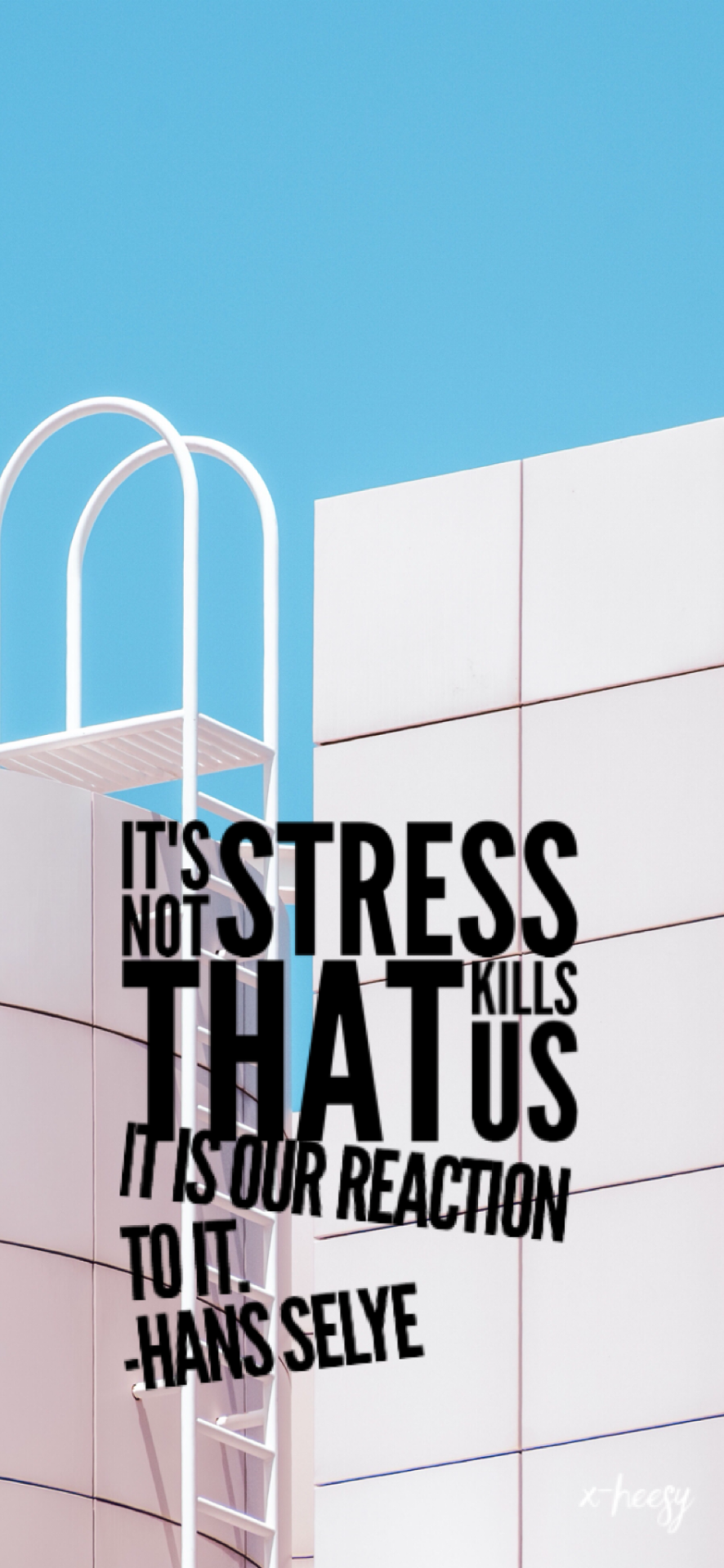
#x-heesy#Hans Selye#artsyfartsy#artfuckery#artful quote#quoteoftheday#qotd#my art#typography#art post#express yourself#8/2022#fucking favorite#now playing#music and art#iphone art
2 notes
·
View notes
Text
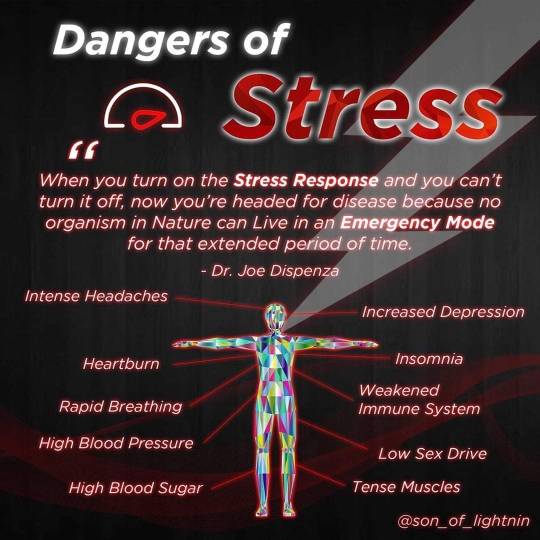
“It’s not stress that kills us, it’s our reaction to it” - Hans Selye 🌟
—
Humans are meant to Live in Harmony with Nature, and occasionally be exposed to stress, such as when a tiger is running towards us. But the problem with modern society is that we are constantly exposed to stress. Co-worker is annoying. Can’t miss the bus. Cellphone broke down, you name it 🌬
—
It’s usually not the situation that creates the stress in our lives, it’s the way we perceive it, and the thoughts around it that creates the stress response. But we are in FULL charge of our thoughts, it all starts with us sitting down to Meditate 🌊
22 notes
·
View notes
Text
Most of our tensions and frustrations stem from compulsive needs to act the role of someone we are not.
—János (Hans) Selye, M.D., The Stress of Life
64 notes
·
View notes
Text
Excerpt’s from Gabor Maté’s ‘When the Body Says No: The Cost of Hidden Stress,’ pages 194-231.
- “The less the emotional capacity for self-regulation develops infancy and childhood, the more the adult depends on the relationships to maintain homeostasis. The greater the dependence, the greater the threat when those relationships are lost or become insecure.” pg 197
- “One learns love not by instruction, but by being loved.” pg 202
- “Future relationships will have as their templates nerve circuits laid down in our relationships with our earliest caregivers. We will understand ourselves as we have felt understood, love ourselves as we perceived being loved on the deepest unconscious levels, care for ourselves with as much compassion as, at our core, we perceived as young children.” pg 207
- “Blame becomes a meaningless concept if one understands how family history stretches back through the generations.” pg 216
- “The central issue is the unintentional transmission of stress and anxiety across the generations.” pg 217
- “As Hans Selye pointed out, the unacknowledged assumptions of the scientist will often limit and define what will be discovered. Settling for the view that illness, mental or physical, are primarily genetic allows us to avoid disturbing questions about the nature of the society in which we live. If “science” enables us to ignore poverty or man-made toxins or a frenetic and stressful social culture as contributors to disease, we can look only to simple answers: pharmacological and biological. Such an approach helps to justify and preserve prevailing social values and structures. It may also be profitable.” pg 229
- “Stress is the result of an interaction between a stressor and a processing system. That processing apparatus is the human nervous system, operating under the influence of the brain’s emotional centres. The biology of belief inculcated in that processing apparatus early in life crucially influences our stress responses throughout our lives.” pg 231
#gabor maté#mate#quotes#life#wisdom#philosophy#psychology#idea#ideas#when the body says no#the cost of hidden stress#illness#stress#chronic stress#author#books#book#write#writing#writer
21 notes
·
View notes
Text
"Its not stress that kills us, it is our reaction to it." ~Hans Selye
1 note
·
View note
Text
The biologist Hans Selye states that “as specific causes of disease (microbes, undernourishment) disappear, a growing proportion of people die of what are called stress diseases, or diseases of degeneration caused by stress, that is, by the wear and tear resulting from conflicts, shocks, nervous tension, irritations, debilitating rhythms...” From now on, no-one can escape the necessity of conducting his own investigation into the racket which pursues him even into his thoughts, hunts him down even in his dreams. The smallest details take on a major importance. Irritation, fatigue, rudeness, humiliation... Cui bono? Who profits by them? And who profits by the stereotyped answers that Big Brother Common Sense distributes under the label of wisdom, like so many alibis? Shall I be content with explanations that kill me when I have everything to win in a game where all the cards are stacked against me?
Raoul Vaneigem, from Revolution of Everyday Life (tr. John Fullerton, Paul Sieveking)
#raoul vaneigem#john fullerton#paul sieveking#revolution of everyday life#translations#nonfiction#essays#on alienation#2022 reads
3 notes
·
View notes
Text
Psychopathology, Ch 4 pt. 1
Health psychologists: psychologists who study inter-relationships between psychological factors and physical health.
Stress: pressures or demands placed on organisms to adapt or adjust.
Stressor: a source of stress.
- A certain amount of short-term stress keeps us active and alert. However, stress that is prolonged or intense can overwhelm us and lead to distress: a state of physical or mental pain or suffering.
Evaluate the effects of stress on health.
Stress has effects on the body’s endocrine and immune systems. Although occasional stress may not impair our health, persistent or prolonged stress can eventually weaken the body’s immune system, making us more vulnerable to disease.
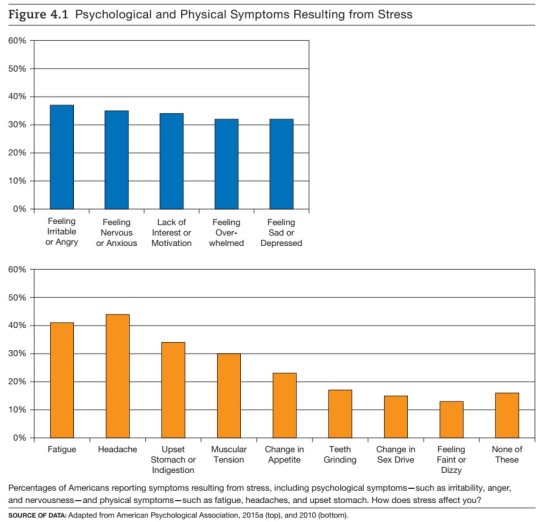
Endocrine system: the system of ductless glands that secrete hormones directly into the bloodstream.
Hormones: substances secreted by endocrine glands that regulate body functions and promote growth & development.

Immune system: the body’s system of defense against disease.
Identify and describe the stages of the general adaptation syndrome.
General adaptation syndrome (GAS): a common biological pattern of response to prolonged or excessive stress.
- term coined by Hans Selye
- refers to the body’s generalized pattern of response to persistent or enduring stress, which is characterized by three stages:
The alarm reaction, in which the body mobilizes its resources to confront a stressor
The resistance stage, in which bodily arousal remains high but the body attempts to adapt to continued stressful demands
The exhaustion stage, in which bodily resources become dangerously depleted in the face of persistent and intense stress, at which point stress-related disorders, or diseases of adaptation, may develop.
Alarm reaction: the first stage of GAS, characterized by heightened sympathetic nervous system activity.
- Stress-related changes associated with the alarm reaction:
Corticosteroids are released.
Blood shifts from the internal organs to the skeletal muscles.
Epinephrine and norepinephrine are released.
Digestion is inhibited.
Heart rate, respiration rate, and blood pressure increase.
Sugar is released by the liver.
Muscles tense.
Blood-clotting ability is increased.
Fight-or-flight reaction: the inborn tendency to respond to a threat by either fighting or fleeing.
Resistance stage AKA adaptation stage: the second stage of GAS, involving the body’s attempt to withstand prolonged stress and preserve resources.
Exhaustion stage: the third stage of GAS, characterized by lowered resistance, increased parasympathetic nervous system activity, and eventual physical deterioration.
Evaluate evidence of the relationship between life changes and psychological and physical health.
Exposure to a high number of significant life changes is linked to increased risk of developing physical health problems. However, because this evidence is correlational, questions of cause and effect remain.
Evaluate the role of acculturative stress in psychological adjustment.
Acculturative stress: pressure that results from the demands placed on immigrant groups, indigenous peoples, and ethnic minorities to adjust to life in the mainstream culture.
The pressures of acculturation, or acculturate stress, can affect mental and physical functioning. The relationships between level of acculturation and psychological adjustment are complex, but evidence supports the value of developing a bicultural pattern of acculturation, which involves efforts to adapt to the host culture while maintaining one’s traditional ethnic or cultural identity.
- Research with Hispanic Americans found the following psychological effects associated with acculturation:
Increased risk of heavy drinking among women
Increased risk of smoking & sexual intercourse among adolescents
Increased risk of disturbed eating behaviors
Identify psychological factors that moderate the effects of stress.
Emotion-focused coping: a coping style that involves reducing the impact of a stressor by ignoring or escaping it rather than dealing with it directly.
Problem-focused coping: a coping style that involves confronting a stressor directly.
- Denial of illness can look like…
Failing to recognize the seriousness of the illness
Minimizing the emotional distress the illness causes
Misattributing symptoms to other causes
Ignoring threatening information about the illness
Self-efficacy expectancies: the expectations we hold regarding our ability to cope with the challenges we face, to perform certain behaviors skillfully, and to produce positive changes in our lives.
Psychological hardiness: a cluster of stress-buffering traits characterized by commitment, challenge, and control.
Positive psychology: a growing contemporary movement within psychology that focuses on the positive attributes of human behavior.
2 notes
·
View notes
Text
Xtra Thoughts
February 1
“He who cannot rest, cannot work; He who cannot let go, cannot hold on; He who cannot find footing, cannot go forward.”
–Harry Emerson Fosdick
If you find you’ve reached a dead end, it might be because you’re sitting on it.
“You will never find time for anything. If you want time you must make it.”
–Charles Buxton
I asked my sponsor, “What do you do when you finish working the Steps?” Without batting an eye, he replied, “You lie really still, because you’re dead!”
–unknown
“Maintaining sobriety is like feeding a parking meter. It’s all about change.”
–unknown
“Adopting the right attitude can convert a negative stress into a positive one.”
–Hans Selye

2 notes
·
View notes
Text
" Ce qui est important, ce n'est pas ce qui nous arrive, c'est la manière dont on le prend. "
- Hans SELYE -
0 notes
Text
10 easy ways to manage and relieve stress
Stress can be unavoidable in one's life, but that does not mean that you should ignore it. In as much as stress that is not treated could generate severe physical and mental health issues, there is good news that you can manage stress with total moderatio
10 easy ways to manage and relieve stress
You may be amazed that biological stress is a relatively discovery. It was in the late 1950s that endocrinologist Hans Selye first analyzed and confirmed stress.
The signs of stress long existed before Selye, but his findings brought about fresh truths and facts that have helped millions of people cope with stress.
In the below article, we have…

View On WordPress
0 notes
Text
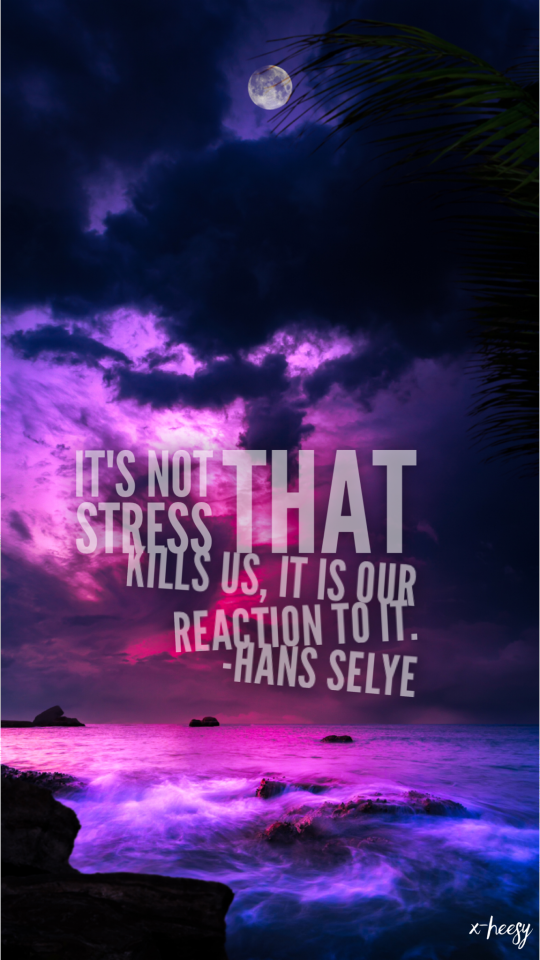

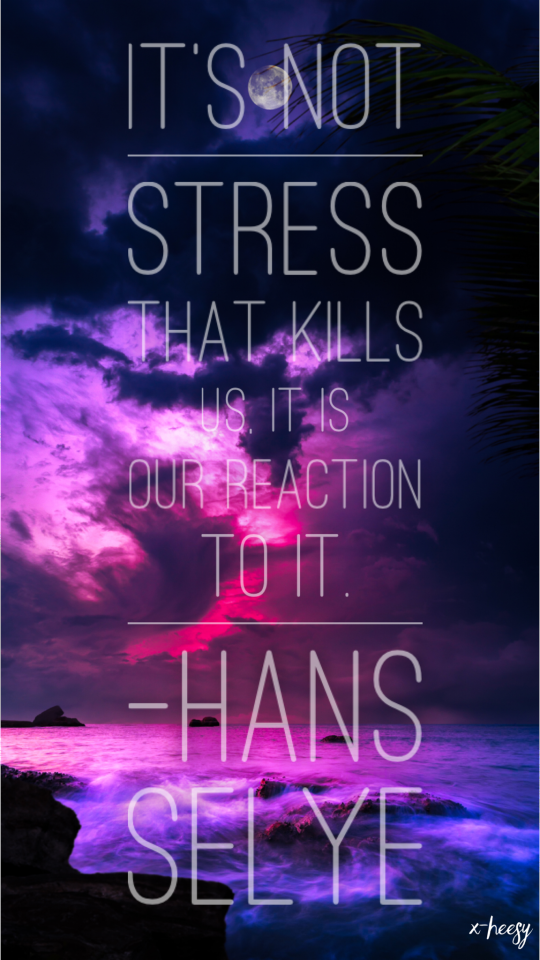
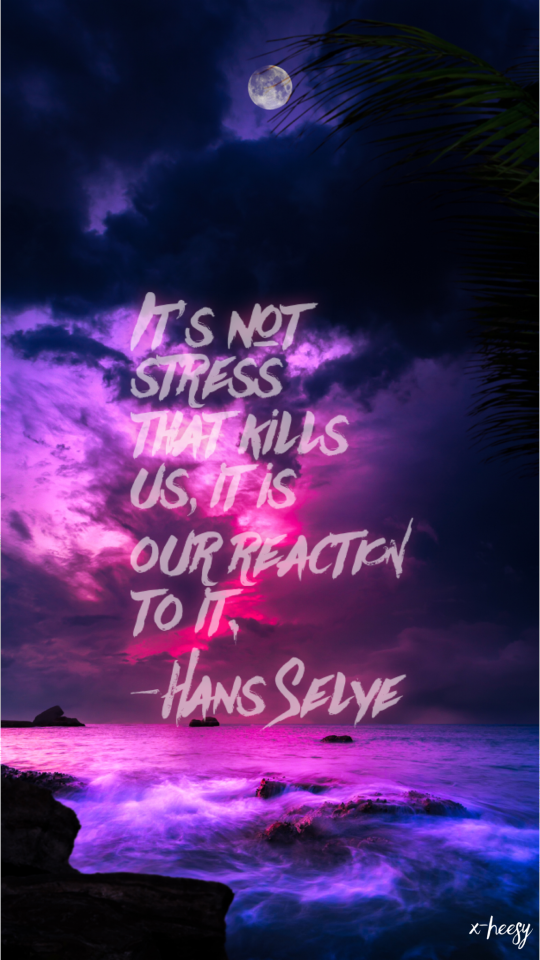


First world problems.... ⚡️
It's not stress that kills us, it is our reaction to it.
Es ist nicht Stress, der uns umbringt, sondern unsere Reaktion darauf.
Non è lo stress che ci uccide, è la nostra reazione ad esso.
Ce n'est pas le stress qui nous tue, c'est notre réaction face à lui.
-Hans Selye 💜
𝗣𝗨𝗥𝗥𝗙𝗘𝗖𝗧 𝗜𝗦 𝝠 𝗠𝗬𝗧𝗛 / 𝗜𝗧’𝗦 𝝠 𝗧𝗥𝝠𝗣 / 𝗕𝗥𝗘𝝠𝗞 𝗙𝗥𝗘𝗘 / 𝗤𝗨𝗘𝗦𝗧𝗜𝝝𝗡 𝗘𝗩𝗘𝗥𝗬𝗧𝗛𝗜𝗡𝗚 / 𝗖𝗛𝝝𝝝𝗦𝗘 𝗪𝗜𝗦𝗘𝗟𝗬 / 𝗪𝗘𝗜𝗥𝗗 𝗜𝗦 𝝠 𝗖𝝝𝗠𝗣𝗟𝗜𝗠𝗘𝗡𝗧 / 𝗡𝝝𝗧𝗘 𝗧𝝝 𝗠𝗬𝗦𝗘𝗟𝗙 / 𝗬𝝝𝗨 𝝠𝗥𝗘 𝗧𝗛𝗘 𝗥𝝝𝝠𝗗 /𝗧𝗛𝗘𝗟𝗜𝗧𝗧𝗟𝗘𝗧𝗛𝗜𝗡𝗚𝗦𝝠𝗥𝗘𝗧𝗛𝗘𝗕𝗜𝗚𝗧𝗛𝗜𝗡𝗚𝗦 / 𝗠𝗬 𝗖𝗥𝗘𝗗𝝝 / 𝗟𝝝𝗩𝗘 & 𝗟𝗘𝗧 𝗟𝝝𝗩𝗘 / 𝗟𝗜𝗩𝗘 & 𝗟𝗘𝗧 𝗟𝗜𝗩𝗘 / 𝗞𝗘𝗘𝗣 𝗜𝗧 𝗦𝗜𝗠𝗣𝗟𝗘 / 𝗞𝗘𝗘𝗣 𝗜𝗧 𝗥𝗘𝝠𝗟 / 𝗩𝗘𝗧𝝝 / 𝗥𝗜𝗦𝗘𝗥𝗘𝗕𝗘𝗟𝗥𝗘𝗦𝗜𝗦𝗧 / 𝗠𝝝𝝝𝗗 𝗕𝝝𝝠𝗥𝗗 /𝗣𝗨𝗡𝗞𝗦𝝠𝗥𝗘𝗡𝗧𝗗𝗘𝝠𝗗 / 𝗡𝝝 𝗚𝝝𝗗𝗦 𝗡𝝝 𝗠𝝠𝗦𝗧𝗘𝗥𝗦 / 𝗣𝗥𝝝 𝗟𝗜𝗙𝗘 𝗠𝗙𝗭 / 𝗘𝗡𝗘𝗥𝗚𝗬𝗦𝗨𝗖𝗞𝗘𝗥𝗭 𝗡𝝝𝗧 𝗪𝗘𝗟(𝗟) 𝗖𝗨𝗠 / 𝗧𝝝 𝝠𝗟𝗟 𝗧𝗛𝝠 𝗟𝗨𝗩𝝠𝗭
#justanfriendlyreminder 💡
#thelittlethingsarethebigthings
#autosuggestion #pointofview #codingyourself #programyourself #endlessness #creatingyourself #neverstoplearning
#fantasy #empathy #equality #respect #love #basics
#textart #artfulquotes #typography #expressyourself #iphoneart #newcontemporary #popart #artsyfartsy #artfuckery
#quotes #quotesdaily #quotestoliveby #quotestagram #quotesaboutlife #quotesoftheday #quotestags #quotesgram #motivationalquotes #quotesandsayings #quoteslover #quotesofinstagram #quotesforlife #quotestoinspire #quotestoremember #quotestag #quotesilove #inspirationalquotes #lovequotes @len0r @darksilenceinsuburbiareloaded @reginafalan-g @luna-zylum @frenchpsychiatrymuderedmycnut @boanerges20 @derflaneur 🩵#quotesaboutlifequotesandsayings #successquotes #dailyquotes #lifequotes #quotesforyou #positivequotes #quotes4you #quotesaboutlove #instaquotes #quoteslife #quoteslove #qotd
Soundtrack: Stressed Out by Twenty One Pilots
I wish I found some better sounds no one's ever heard
I wish I had a better voice that sang some better words
I wish I found some chords in an order that is new
I wish I didn't have to rhyme every time I sang
I was told when I get older, all my fears would shrink
But now I'm insecure, and I care what people think
My name's Blurryface and I care what you think
My name's Blurryface and I care what you think
Wish we could turn back time
To the good old days
When our mama sang us to sleep
But now we're stressed out (oh)
Wish we could turn back time (oh)
To the good old days (oh)
When our mama sang us to sleep
But now we're stressed out
We're stressed out
Sometimes a certain smell will take me back to when I was young
How come I'm never able to identify where it's coming from?
I'd make a candle out of it if I ever found it
Try to sell it, never sell out of it, I'd probably only sell one
It'd be to my brother, 'cause we have the same nose
Same clothes, homegrown, a stone's throw from a creek we used to roam
But it would remind us of when nothing really mattered
Out of student loans and tree house homes, we all would take the latter
My name's Blurryface and I care what you think
My name's Blurryface and I care what you think
Wish we could turn back time
To the good old days
When our mama sang us to sleep
But now we're stressed out (oh)
Wish we could turn back time (oh)
To the good old days (oh)
When our mama sang us to sleep
But now we're stressed out
Used to play pretend, give each other different names
We would build a rocket ship and then we'd fly it far away
Used to dream of outer space, but now they're laughing at our face saying
"Wake up, you need to make money", yeah
We used to play pretend, give each other different names
We would build a rocket ship and then we'd fly it far away
Used to dream of outer space, but now they're laughing at our face saying
"Wake up, you need to make money", yeah
Wish we could turn back time
To the good old days
When our mama sang us to sleep
But now we're stressed out (oh)
Wish we could turn back time (oh)
To the good old days (oh)
When our mama sang us to sleep
But now we're stressed out
We used to play pretend, used to play pretend, money
We used to play pretend, wake up, you need the money
Used to play pretend, used to play pretend, money
We used to play pretend, wake up, you need the money
Used to play pretend, give each other different names
We would build a rocket ship and then we'd fly it far away
Used to dream of outer space, but now they're laughing at our face saying
"Wake up, you need to make money", yeah

#x-heesy#my art#artists on tumblr#3/2023#you are the road#the little things are the big things#knowledge#wisdom#qotd#quoteoftheday#quote#quote of the day#positive quotes#quote inspiration#artful quotes#text art#typography#Italian#Spanish#German#newcontemporary#new contemporary art#choose wisely#fucking favorite#now playing#music and art#contemporaryart#Pop art#iphone art#Hans Selye
40 notes
·
View notes
Text
ik GAS by Hans Selye was criticized the shit out of but i really be feeling that exhaustion stage after prolonged exposure to the same stressor (boards)
my exam mindset left two days ago, i have one tomorrow 😭 and its the worst sub
0 notes
Text
Measuring Stress With Wearable Sensors - Technology Org
New Post has been published on https://thedigitalinsider.com/measuring-stress-with-wearable-sensors-technology-org/
Measuring Stress With Wearable Sensors - Technology Org
In the latest of a series of innovative designs for wearable sensors that use sweat to identify and measure physiological conditions, Caltech’s Wei Gao, assistant professor of medical engineering, has devised an “electronic skin” that continuously monitors nine different markers that characterize a stress response.
Those wearing this electronic skin—a small, thin adhesive worn on the wrist called CARES (consolidated artificial-intelligence-reinforced electronic skin)—are free to engage in all their normal daily activities with minimal interference during testing, which allows for the measurement of both baseline and acute levels of stress.
Fully integrated wireless CARES device. Image Credit: Wei Gao and Changhao Xu
Stress is a slippery concept. We talk about “feeling stressed” or a situation “being stressful,” and we may attach stress to physical symptoms: “I have a stress headache” or “I’m grinding my teeth at night. It must be stress.” The term stress can apply to all sorts of feelings, symptoms, behaviors, and experiences.
Hans Selye, a physician and chemist born in Vienna in 1907, was the first to define stress as a medical condition. Struck by the similar complaints—such as tiredness, low appetite, and lack of motivation—that he heard from patients suffering from very different illnesses, Selye speculated that all of the patients were responding to what they had in common: being sick. He defined stress as a “nonspecific response of the body to any demand.”
Stress may be experienced positively as excitement or energy, or negatively as shock or anxiety. But however stress may be experienced emotionally, it is now widely agreed that depending on its severity and duration, both acute and chronic stress can damage our physical and mental health, and reduce our ability to function as we would like.
Because stress is, as Selye described it, “nonspecific,” there is no single biomarker available to tell us definitively whether or how much a person is stressed. However, stress generates a constellation of bodily reactions that, taken together, can provide a measure of stress independent of self-reports. Gao is monitoring this constellation with CARES.
A sweat sensor worn on the wrist, lifted to show the thinness of the device. Credit: Wei Gao and Changhao Xu / Caltech
“When a person is under stress, hormones like epinephrine, norepinephrine, and cortisol are released into the bloodstream,” explains Gao, who is also an investigator with the Heritage Medical Research Institute and a Ronald and JoAnne Willens Scholar.
“Sweat becomes rich with metabolites like glucose, lactate, and uric acid, and electrolytes like sodium, potassium, and ammonium. These are substances we have measured before using microfluidic sampling on a wearable sweat sensor. What is new in CARES is that sweat sensors are integrated with sensors that record pulse waveforms, skin temperature, and galvanic skin response: physiological signals that also indicate stress in predictable ways.”
New materials further boost the performance of CARES. Though previously used materials for sweat sensors could be produced efficiently via inkjet printing and were capable of accurate measurement of even very scarce compounds, the materials gradually broke down in the presence of bodily fluids. The introduction of a nickel-based compound helps to stabilize the enzymatic-based sensors, such as those that detect lactate or glucose, as does a new polymer added to the ion-based sensors, which detect biomarkers like sodium or potassium.
“Adding these new materials greatly enhances the sensor stability during long-term operation,” Gao reports. Like previous sweat sensors, CARES can be battery powered and can wirelessly communicate with a phone or computer via Bluetooth.
Another important innovation with CARES is the addition of machine learning. Because stress comes in many different forms and stimulates a complex response affecting many different bodily systems, interpreting a wealth of data accurately is key to the usefulness of CARES and other sensors. Experiments inducing stress in subjects wearing the CARES device demonstrated that the sensor accurately measures the interrelatedness of physiological (such as pulse) and chemical (such as glucose) biomarkers. Subjects also answered questionnaires to self-report their feelings of anxiety and psychological stress before and after exposure to stressful situations like vigorous exercise or intense video gameplay. Data showed clear correlations between self-reports of stress and its physicochemical correlates as measured by CARES.
“High levels of stress and anxiety caused by demanding work environments, such as those experienced by soldiers or astronauts, can significantly affect performance,” Gao notes. “Early detection of the severity of stress allows for timely intervention. Our wearable sensor, combined with machine learning, has the potential to provide real-time stress-level insights.”
Written by Cynthia Eller
Source: Caltech
You can offer your link to a page which is relevant to the topic of this post.
#anxiety#artificial#astronauts#battery#biomarkers#Biotechnology news#bloodstream#bluetooth#Born#caltech#chemical#Chemistry & materials science news#computer#consolidated#data#detection#electrolytes#electronic#electronic skin technology#energy#engineering#Exercise#Experienced#Featured life sciences news#Featured technology news#fluids#Forms#glucose#Hardware & gadgets#Health
0 notes
Text
i’m researching for a paper rn and i am delighted to learn that there is an entire genre of academic paper that consists of people shitting on hans selye, the “father of stress,” not because he was a bad scientist (which he sort of was, as apparently he got a lot of funding from the tobacco industry and conveniently wrote a lot of things that were used to support tobacco as a product) but because he apparently just didn’t really understand the meaning of the word stress and he got so popular that now it’s basically impossible to use stress in a scientific manner because it doesn’t have a widely accepted definition anymore
0 notes
Text
How a personal trainer north york tracks heart rate variability to help manage client stress
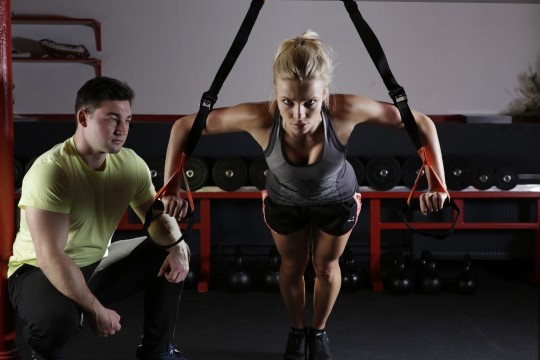
More than 60% of all human diseases have stress as a major contributing element. Therefore, it should come as no surprise that stress is keeping your personal training customers from seeing the success they have worked so hard to achieve. The importance of stress is such that a personal trainer North York spends a substantial amount of his training time working to keep his customers stress-free.
In fact, stress can cause serious harm to your clients' health, slowing down their metabolism, causing hormone imbalances, and impairing their capacity to make wise decisions, particularly in relation to food.
We must first define stress, the numerous causes of it, and the function it serves in preserving homeostasis in order to better comprehend the impact it is having on your clients.
DEFINED STRESS
How would you describe stress, if I asked you? Most individuals believe that stress is mainly mental in nature. When the topic is brought up, the most frequent ideas that come to mind are stress from work and life.
However, stress is more appropriately described in terms of the human body and, more crucially for the purposes of this essay, in the context of exercise and fitness as "anything that disrupts homestasis."
Although that definition may seem very wide, it's crucial to remember that stress encompasses more than just the pressures of job and family. It is also physical and environmental. Our bodies are constantly working to maintain homeostasis, but when a stressor enters the picture, such as a work deadline or a vehicle accident, the same physiological response occurs.
This response, which was first noted in the 1930s by a trailblazing scientist by the name of Hans Selye, gets our body ready to deal with the immediate physical demands of that stressor by spiking our heart rate, blood pressure, and different hormones like cortisol and adrenaline.
Also non-specific is stress. Meaning that the stress response pattern largely stays the same regardless of the specific stressor. Therefore, whether your client is lifting weights or has trouble sleeping due to anxiety, they will both experience a surge in hormones and a similar systemic reaction to deal with the stressor.
As a fitness expert, you can find this to be somewhat overwhelming. Not to mention how your clients could feel. Therefore, the crucial question is: "How can I support my clients in better managing the stress that is undermining their outcomes without fundamentally altering their entire lives?"
VARIABILITY IN HEART RATE TO THE SAVING
You might be wondering right now, "What the heck is heart rate variability?" You may even be familiar with it. You probably weren't aware of how simple it is to use or how much it can benefit your client's programs, though.
The variation in the interval between successive heartbeats is known as heart rate variability (HRV). The autonomic nervous system (ANS), a component of the central nervous system (CNS) that controls several important involuntary bodily activities, such as the contraction of the heart muscle, smooth muscles like the ones in the intestines, and glands, is activated when HRV is present. The sympathetic nervous system (SNS), which activates the body's "fight-or-flight" reaction, and the parasympathetic nervous system (PNS), which activates the "rest and digest" response, are two further subsystems of the autonomic nervous system (ANS)5. PNS stimulation is indicated by a large variability, whereas SNS activation is indicated by a low variability. It is crucial to understand that excesses in either way are a sign of an overreaction to stress.
Even though the ancient Greeks had recorded heart rate, it wasn't until the 1970s with the introduction of digital monitoring systems that HRV could be measured accurately. At this point, HRV measures were utilized to detect changes in health caused by stress.
Your clients can perform the self-administered HRV evaluation while still in bed in the morning because it is incredibly simple to use and non-intrusive. All that is needed is a chest strap heart rate monitor and a free app that calculates HRV.
We can use this straightforward assessment technique to determine the impact that all types of stress are having on our clients' bodies in the context of employing HRV to better help their results, and we can start modifying their training as a result.
READINESS EACH DAY AND PROGRAM DESIGN
There are numerous programs that you may use to keep track of your client's HRV. I myself have tried two, Bioforce HRV and Elite HRV. Based on the HRV reading taken as soon as you wake up in the morning, both applications offer a Daily Readiness score. The Daily Readiness score, which ranges from 1 to 10, represents the physical "readiness" of your customers' bodies for rigorous training. The better your client is healing from her training and the other stressors she is experiencing, the higher the score. The lower the score, the worse she is recuperating, and it may be necessary to make more adjustments to prevent overtraining or, worse yet, injury.
Numerous bodily functions, including hormone production and fuel use, are hampered when your client is not healing properly. Long-term under-recovery might cause significant sickness, even though individuals may not immediately notice any negative repercussions from it.
Understanding how your client's body reacts to stress will help you better understand how to train them. Think about this instance.
Consider that you have a demanding leg-day session planned for your client on Monday. However, your client had a restless night's sleep and is juggling a lot of job responsibilities. Without HRV, you wouldn't know how well their body is recovering or how ready it is. You would proceed with the leg workout even though they might not perform as well as they usually would. However, if they had obtained a low Daily Readiness score—say, a 3—you would have known ahead of time that their body is not recovering well and that they shouldn't train with the high intensity that was intended.
The beauty of this is that we can alter our clients' plans on a daily basis in accordance with what their bodies require. If their HRV score is high, everything will go according to schedule. However, if they perform worse, we have the option of lowering the level of stress that is placed on them throughout the session. We may choose to perform a low-intensity cardio workout rather than reducing the overall load or volume or lengthening the rest period.
ESTIMATE, DON'T GUESS.
HRV is only as good as how it is used, just like any other technology. Time is wasted by taking HRV scores but doing nothing different. When HRV is measured, however, a lot of the conjecture that went into designing your program can be replaced with information that will allow you to provide better service to your consumers.
1 note
·
View note
Text
STRESS E ALIMENTAZIONE: COME AFFRONTARE IL RAPPORTO TRA STRESS E CIBO
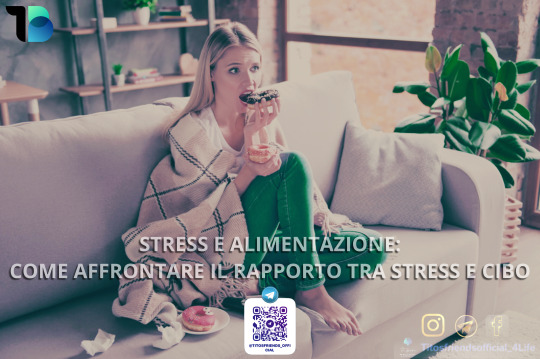
Oggi ci concentreremo su un aspetto che coinvolge molte persone: il perché tendiamo a mangiare di più quando siamo stressati. Chi di noi, soprattutto in periodi di tensione, non ha la tendenza a concedersi comfort food senza freni❓Lo stress spesso ci fa dimenticare persino l'esistenza della bilancia, e c'è una spiegazione scientifica dietro questo fenomeno.
Esploreremo il motivo per cui il nostro appetito è influenzato principalmente dal cervello piuttosto che dallo stomaco e metteremo in luce la connessione tra cibo e stress.
Comprendere lo Stress: Cause e Effetti
Per cominciare, è importante definire lo stress. Hans Selye nel 1926 lo descrisse come "una risposta non specifica del corpo a qualsiasi tipo di stimolo". Questi stimoli possono derivare da fonti esterne, come problemi finanziari o familiari, oppure da fonti interne, come dolore o malattie, e possono scatenare una risposta di stress nel corpo.
Questa risposta alinea cambiamenti fisiologici, tra cui un'attivazione eccessiva del sistema nervoso centrale. Tale attivazione può portare alla secrezione di ormoni come adrenalina, noradrenalina e cortisolo, scatenando una reazione di "combatti o fuggi".
Il cortisolo, ad esempio, stimola la produzione di zuccheri nel sangue per fornire energia ai muscoli. L'adrenalina accelera il battito cardiaco e la respirazione, causando sudorazione e dilatazione delle pupille.
Relazione tra Cibo e Stress: Risultati della Ricerca
Lo stress può influenzare notevolmente il nostro appetito e la sensazione di fame. Quando siamo stressati, spesso proviamo un'irresistibile voglia di cibo, che va oltre la necessità fisica. Questa fame è innescata principalmente da fattori psicologici piuttosto che fisici.
Ma perché lo stress influenza il nostro appetito❓Vediamo cosa emerge dalla ricerca scientifica.
Uno studio dell'Università di Liverpool condotto da Lattimore e Caswell ha concluso che le persone che mangiano in modo incontrollato in situazioni stressanti di solito concentrano molte energie nel tentativo di controllare i propri segnali biologici, lasciandosi poche risorse per affrontare la vita quotidiana. Queste persone sono talmente distanti dalla consapevolezza di sé stesse che ignorano i segnali legati alla fame o alla sazietà.
Altre ricerche suggeriscono che coloro che sono più inclini a fare abbuffate in situazioni stressanti sono spesso le persone più vulnerabili, che ricorrono al cibo come mezzo per sfuggire da sé stesse, specialmente in momenti stressanti. L'ansia, se non è eccessiva, può anche avere effetti benefici, aumentando il consumo di dolci o alimenti grassi che innescano la produzione di serotonina e altri neurotrasmettitori, inducendo una sensazione di benessere per compensare lo stress, che al contrario porta a un aumento del cortisolo, favorendo l'accumulo di grasso.
Sintomi e Conseguenze
Questi studi evidenziano che l'abuso alimentare in situazioni stressanti è spesso guidato da emozioni negative e può portare a sintomi come:
Ossessione per il cibo.
Mangiare anche quando si è sazi.
Oscillazioni di peso.
Questi comportamenti possono portare a problemi di salute come sovrappeso, obesità e l'insorgenza di condizioni come problemi muscolari, ipertensione, disfunzioni respiratorie e malattie cardiovascolari. Inoltre, possono causare depressione, attacchi di panico, rabbia e una diminuzione dell'attenzione e della concentrazione, poiché lo stress influisce non solo sull'alimentazione ma anche sul processo cognitivo.
Se lo stress persiste nel tempo, può abbassare le difese immunitarie dell'organismo, aumentando il rischio di malattie e ulteriori problemi di salute.
Gestione dello Stress e dell'Alimentazione
Cosa possiamo fare per affrontare lo stress e il suo impatto sull'alimentazione❓
Praticare esercizi di rilassamento e respirazione.
Dedicare del tempo a piacevoli attività di svago.
Promuovere l'attività fisica, che stimola la produzione di endorfine, gli ormoni del buon umore.
Condividere il tempo con persone che ci fanno sentire bene.
Se lo stress sembra incontrollabile, è consigliabile consultare un professionista, come uno psicologo online o in persona, per affrontare la causa alla radice e sviluppare strategie efficaci per gestire lo stress e l'alimentazione.
Se stai cercando di capire perché lo stress ti fa mangiare di più e vuoi gestire in modo più sano la tua alimentazione, prendi il controllo della tua vita oggi stesso. Scopri come affrontare il rapporto tra stress e cibo, evitando il ricorso alle abbuffate emotive. Voglio aiutarti a raggiungere un equilibrio nella tua alimentazione e nella gestione dello stress. Contattami ora per iniziare il tuo percorso verso una vita più sana e serena❗️
Tito Bisson
UNISCITI AL CANALE TELEGRAM CLICCA 👉🏻 QUI 👈🏻
HAI BISOGNO DI AIUTO❓Cheidi al PROFESSIONISTA online, inquadra il CODICE IQR qui sotto e INIZIA A CHATTARE: 👇🏻👇🏻👇🏻👇🏻👇🏻👇🏻👇🏻👇🏻👇🏻👇🏻👇🏻👇🏻👇🏻👇🏻👇🏻

#tito bisson#life coach#mental coach#psicologia#psicologo#sviluppo personale#forza interiore#accettazione#consapevolezza#bisogni#necessità#aiuto#sostegno#meditazione#buddismo#buddha#emozioni#interiore#salute#benessere#corpo#mente#rinascita#comunicazione#realizzazione#realizzare#stress#cibo
1 note
·
View note